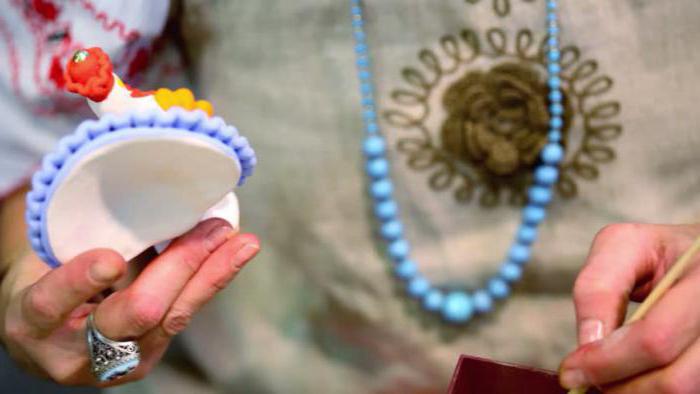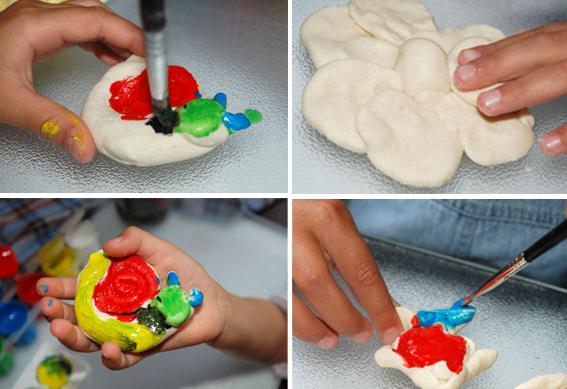A proven salty dough recipe for modeling with toddlers
With the birth of my grandson, I became interested inInternet development of young children. The daughter continued to study at this time at the university, and she just had no time to do it. Soon I got some decent information, which I carefully store on the computer and on the disks. When the grandson turned a year old, we together tested the first recipe for a salt dough for modeling.
For this I took a glass of flour, an incomplete glassfine salt, 5 tablespoons of vegetable oil, very little water and starch. First I stirred the salt in water, added the rest of the ingredients and kneaded the dough. While I was making juice from beets and carrots for dyeing dough pieces, my grandson first tasted this dough. It was very amusing to watch his reaction. I did not forbid him to pull the dough into his mouth, but this was the only case. There were no more attempts.
I divided the dough in four parts. Three of them I painted, the first - in the juice of beets, the second in the juice of spinach, the good of it in our garden grew a lot, the third - in the juice of carrots, and the fourth left unchanged. As you can see, making a salted dough for modeling is not difficult.
On the first day, we just got acquainted with the test. In the beginning, the taste, as I already told you, was then touched and crushed by his hands, slapped with palms and rejoiced with delight. Still, no prohibitions! Believe me, the dough has such a salty-bitter taste that it does not feel like taking it into your mouth. Try and see for yourself. Calmly let your children pull it in your mouth. No child will eat it. But molding will become the child's favorite pastime in the future.
Preparing a salt dough for modeling takeslittle time. But this dough can be stored in the refrigerator in different closed jars of baby food for a long enough time. We had enough for a month and a half. Then, for reasons of hygiene, it is better to replace it.
For a week, my grandchild and I learned how to make flat cakes. I rolled balls, and he clapped them with his palm and flattened them. I made bagels, marbles, from salted dough, rolled them on the table. We even tried to play them like a ball. The grandson really liked to press down the peas and put rice on the layers. When he got older, we learned to pinch off pieces of salted dough, roll them on the table and make eyes and a spout for the animals I sculpted him. Believe me, this is a fascinating and useful lesson not only for kids.
I'll tell you one more recipe for salted dough formolding. I will say right away, I have not tried it, but with older children, I think you can use it. For this, take 200 grams of flour, 400 grams of salt, 250 grams of warm water, 2 tablespoons of PVA glue or wallpaper paste. First, dissolve the glue in warm water separately, and flour and salt with water separately. Then mix everything in one bowl and mix the dough well until smooth. Try to follow the formula exactly, so that the dough does not break in the future and does not crack when drying figures. To color the dough, use cocoa, food colorings or gouache, diluted with water.
Very beautiful figures can be sculpted withpreschoolers, if you apply the following recipe for salted dough for modeling. It is more laborious, but it's worth it. Mix in a pan 200 grams of flour, 100 grams of salt, one tablespoon of vegetable oil and cream, 300 grams of water, add the water color dissolved in water and put on a small fire. A few minutes you have to cook the dough until it thickens. Then lay it on a flat surface and cool it. Finely dough the kneading by hand, make it elastic and soft for modeling.
Finished figures covered on top of a whipped egg,to give them the look of a glazed product. You can dry them at room temperature, and then dry in the oven for several hours. You can not use a microwave oven for this purpose, as the salt in it can just catch fire.
Whichever way you use a salted dough recipefor modeling with children, it should always be stored in the refrigerator, kneaded before use, ready to dry thoroughly, if you intend to use them for long-term storage.
</ p>







